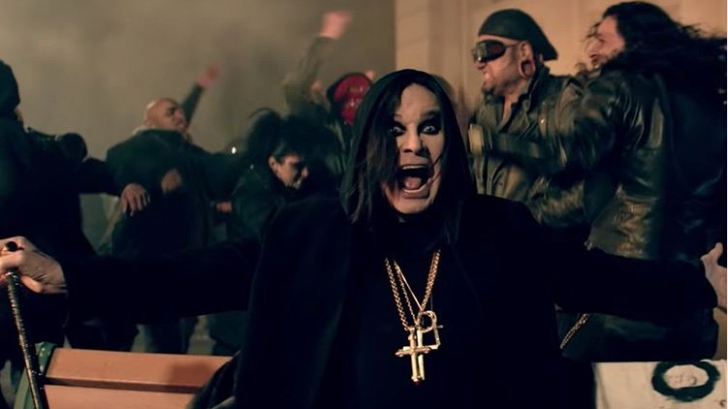When Ozzy Osbourne was fired from Black Sabbath, he believed his career was gone. Before being approached by Sharon Arden, the musician, who was abusing drugs and alcohol and living in appalling conditions, had decided to give up and let the party finish him.
While working for her father Don Arden, who at the time was managing Black Sabbath, Sharon Osbourne first got to know the band’s leader Ozzy Osbourne when she was 18 years old. Everything in his life eventually altered radically after Sharon started dating him, took over his management as a solo artist, and started working on Blizzard of Ozz, his debut album sans Sabbath.
Instead of a solo effort, it was intended to be launched as a band.
Osbourne’s solo debut garnered a lot of attention even though it was supposed to be seen as a band effort. Blizzard of Ozz, Ozzy Osbourne’s band, had planned to release an album under that name. Osbourne’s name ended up being scaled bigger than the band name on the album cover, creating the appearance that he was the only performer present.
Osbourne thought it was a contest.
The vocalist subsequently said that he believed Black Sabbath, who had replaced him with Ronnie James Dio, would face direct competition from the record. Just a few months before Blizzard of Ozz, their first album with Dio, Heaven and Hell, was released and was a huge hit.
In his autobiography, I Am Ozzy, Osbourne remarked.
“I’d be talking out my arse if I said I didn’t feel like I was in competition with Black Sabbath when we made Blizzard of Ozz. I wished them well, I suppose, but part of me was shitting myself that they were going to be more successful without me.”
His debut record, however, outsold his finest album with Sabbath.
Blizzard of Ozz sold more than six million records worldwide, outselling Paranoid sold over 5 million copies globally.
“You Said It All” was supposed to be included.
The band rapidly cobbled together a last-minute song named “You Said It All” since the label demanded a new single, but it was never recorded. The song was covered live on the 1980 Mr Crowley Live EP.
Gary Moore was meant to play guitar on it at first.
Thin Lizzy guitarist Gary Moore was Osbourne’s initial pick for his lineup to make the record. As per Osbourne, Moore was “always hot and cold,” probably due to the singer’s untrustworthy character, which got him dismissed from Sabbath in the first place.
Ozzy Osbourne inspired the song “Suicide Solution.”
Bob Daisley, the bassist, claims that the lyrics for “Suicide Solution” were influenced by Osbourne’s destructive behavior. Daisley claims that the song is about Ozzy Osbourne, despite the fact that many people believed it was about Scott from AC/Bon DC, who passed away from alcohol poisoning around the same time.
In a conversation with Classic Rock magazine, the singer said, “I was going the same way as Bon Scott.”
Osbourne then was later sued over the song “Suicide Solution.”
John McCollum, a teenage boy who killed himself in 1986, was found wearing headphones. His parents insist that side one of Blizzard of Ozz, which contains the tune “Suicide Solution,” was on his turntable because of the lyrics.
Osbourne felt awful, but he didn’t think he was to blame. The musician was legally exercising his right to free expression, and the judge dismissed the case because there was insufficient proof to back up the argument that he was trying to persuade anybody to commit suicide. Many believed he ought to have exercised greater caution, though.
A farewell letter.
Osbourne reportedly said that he suggested “Goodbye to Romance” to be a farewell song for Black Sabbath.
The problems with a reissue.
Osbourne had to employ new bassist and drummer for the 2002 album release due to a lawsuit brought by Daisley and the former drummer Lee Kerslake for unpaid royalties after being sacked. The drum sections were re-recorded by Mike Bordin, the singer’s drummer at the time of the reissue, while Metallica’s Robert Trujillo provided bass.
A dedication to Rhoads.
“RR” is an unreleased Rhoads track from the Blizzard sessions. It was eventually added to the album’s reissue as a dedication to Rhoads, who died just two years after the album’s first release.

